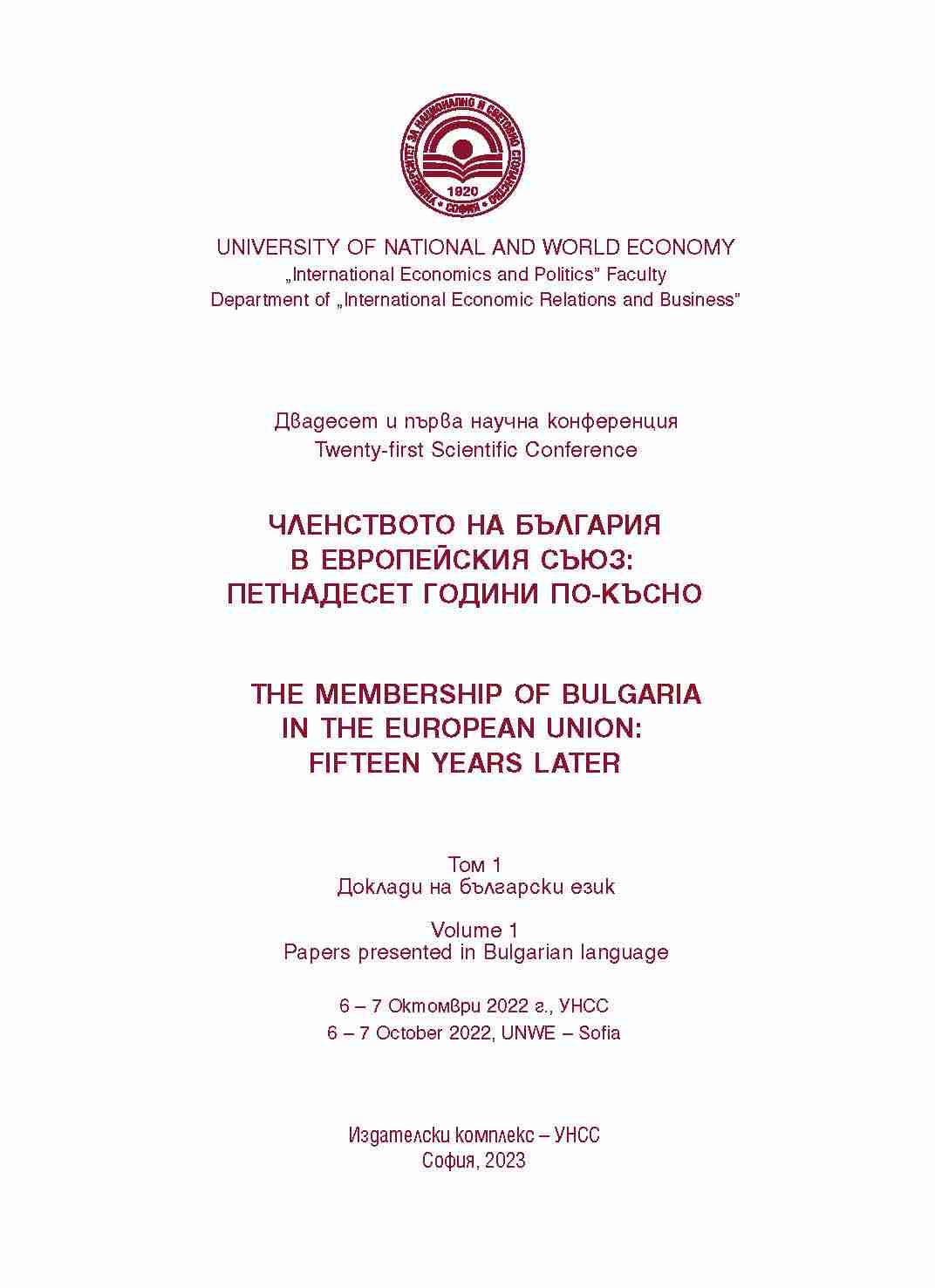Временните мерки за заетост и европейският инструмент SURE в България – постигнати резултати и научени уроци
Temporary Employment Measures and the EU Sure Instrument in Bulgaria – Results Achieved and Lessons Learned
Author(s): Dragomir Draganov
Subject(s): Politics / Political Sciences, Politics, Labor relations, Economic policy
Published by: Университет за национално и световно стопанство (УНСС)
Keywords: labor market policy; temporary job retention measures; COVID-19; European funds; SURE; resource curse
Summary/Abstract: The aim of this paper is to investigate some of the results of the application of the SURE instrument of the EU (European instrument for temporary support to mitigate unemployment risk in an emergency) in Bulgaria. The instrument was adopted in May 2020 as a response to the COVID-19 outbreak. The analysis uses the theoretical concept of the so-called “resource curse” which suggests that the abundance of non-tax revenues could result in weakened economic effectiveness while recognizing the mediating role of political decisions for these outcomes. In that regard, the main hypothesis of the study is that the easy access to revenues of a temporary nature through the SURE instrument for financing job retention measures during the COVID-19 pandemics has contributed to occurrence in Bulgaria of some deviations from the good practices in application of similar measures known by the example of other countries. The elements which are particularly affected are the targeting and the timeliness of support.
- Page Range: 86-114
- Page Count: 29
- Publication Year: 2023
- Language: Bulgarian
- Content File-PDF

